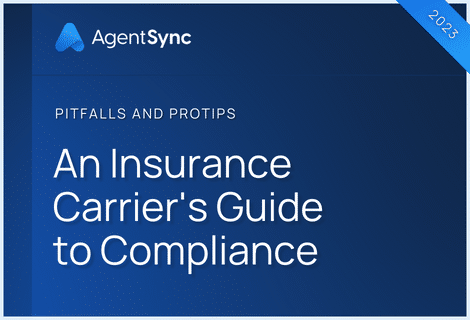

Pennsylvania isn’t typically known as the state of all things sweet and delicious. However, as home to both Hershey’s chocolate bars and Peeps marshmallow chicks, Pennsylvania is the ooey-gooey sugar capital of our candy-loving nation.
In addition to specializing in finger-licking treats, Pennsylvania also concocts some truly to-die-for insurance producer licensing continuing education (CE) requirements. And while we’ve done our research on Pennsylvania’s CE requirements, we’d hate for you to get stuck on a particularly sticky rule. To be safe, it’s always a good idea to go straight to the source: the Pennsylvania Insurance Department website.
What is the due date for Pennsylvania Insurance CE Credits?
Resident licensees in Pennsylvania must renew their license every two years on the last day of their birth month. We know that it can be hard keeping track of birthdays – especially your own. To help with that, Pennsylvania will send over a reminder notification 60 days before license expiration.
Who’s exempt from Pennsylvania Insurance CE?
If you aren’t a resident producer in Pennsylvania, then you can disregard this article. All nonresident producer licensees are exempt from Pennsylvania’s CE requirements so long as they’re compliant in their home state. The only exception here is for producers who sell long-term care insurance. Those producers must be sure to meet Pennsylvania’s long-term care CE requirements, which we’ll cover in more detail below.
If you’ve been at this a while – licensed for the same line of authority and haven’t added any new lines of authority since before January 1, 1971 – then you’re exempt from CE!
How many hours of CE are required for Pennsylvania insurance producers?
Resident producers in Pennsylvania must complete 24 hours of CE credits every biennial renewal period.
To get CE credits, students must take an exam at course completion. These courses are closed book and must be passed with a score of 70 percent or higher. While you can’t repeat a course within the same renewal period, don’t stress if you don’t pass the exam on the first go. These exams can be retaken an infinite number of times. As a member of the NAIC Continuing Education Reciprocity agreement, Pennsylvania also has a wide variety of courses available to producers.
In response to the COVID-19 pandemic, Pennsylvania has adjusted its proctor requirements for CE exams. Instead of using a face-to-face proctor, virtual proctors should be used if feasible. If a virtual proctor isn’t feasible, then the proctoring requirement will be eliminated for the approved online course.
If you’re anything like us and have a passion for CE, we’ve got some amazing news for you: Pennsylvania will let you carry over 24 hours of CE credits to the next renewal period. That means, if you take an extra 24 hours of CE credits in a single renewal period, then you can complete all of your CE requirements for your next renewal period.
Additionally, if you’re an insurance producer and you teach a CE course, you can receive double credit for the number of hours spent teaching that course within a licensing period. If you co-taught a course, you and the co-teacher should share the hours evenly and then double them to determine how many CE credits you qualify for.
Some lines of authority and insurance products feature some tailor-made CE requirements. We’ve spent some time outlining those below.
Annuity requirements
Pennsylvania likes to make sure producers who sell annuity products are well informed on the topic. As a result, producers need to complete a minimum of four CE credits in an approved annuities course before transacting annuities products.
Long-Term Care Partnership training requirements
Resident producers in Pennsylvania who wish to sell, solicit, or negotiate long-term care products must first complete an eight-hour training course. As part of the initial eight-hour training program, producers will need to complete one hour of training on the Medical Assistance Program (Medicaid). To maintain that license, producers will need to complete four hours of follow-on credit hours every biennial renewal period.
Flood training requirements
FEMA and the National Flood Insurance Program set baseline standards for producers who sell flood insurance. As part of those standards, producers need to complete a minimum of three training hours specific to flood insurance. Pennsylvania supports those baseline standards and doesn’t require any add-on requirements in addition to them.
For more information about state-specific licensing requirements, or to find out how AgentSync can make it easier to operate across multiple states, check out our state pages.
Pennsylvania Insurance CE FAQs
When do I need to report course completion?
Pennsylvania asks that you report to the state within 10 days of course completion.
What do I need to report course completion?
You’ll need the agent’s license number and a state filing fee of $5.

